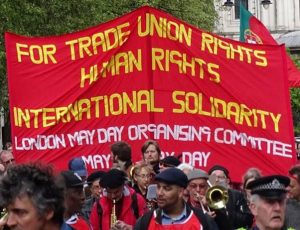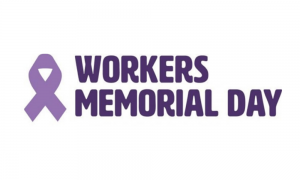Who we are
The Anti-Racist Alliance Trust (aratrust), a charitable company, was set up in 2000 by Harrow Anti-Racist Alliance, a voluntary organisation, inaugurated by about 100 people overwhelmingly of minority-ethnic heritage in 1993. It is ethnic-minority led. Aratrust has maintained and extended this diversity amongst its Board Members, Supporters, children’s and youth groups, and volunteering, advice and health beneficiaries.
Aratrust worked collaboratively in partnership with many other Harrow minority-ethnic voluntary groups to set up CARRAMEA, the Consortium of Anti-Racist, Refugee and Minority-Ethnic Associations, which took over Harrow Council’s Community Premises in 2013 to stop its closure during the austerity cuts to local government revenue. Aratrust volunteers are at the heart of the new Carramea Community Resource Centre and guarantee its survival and continued development. The Centre is open 7 days a week. It has about 20 registered minority-ethnic community groups and footfall of about 3,000 per month in normal times. 92% of Centre-users are from minority-ethnic backgrounds and 82% are female. It remains a strong, mutually beneficial and supportive collaboration.
Aratrust’s Mission
Aratrust, was formed to take effective action against racism. Racism is both morally repugnant and a threat to our society as it divides people and all too often leads to physical conflict.
In its most extreme forms, Trans-Atlantic Slavery, the Holocaust and Apartheid, racism is unequivocally condemned by the great majority of people.
However, despite people’s repudiation of such extreme forms of racism, it is deeply embedded in all levels of our society in Britain, especially in its subtle, all-pervasive, institutionalised form which was recognised in The Stephen Lawrence Inquiry Report. At a national level, racism holds back both the economic progress and the general development of the whole of our society. Racial discrimination often prevents the most suitable people being offered jobs or promotion, limits our cultural development, and excludes people from our society.
At an individual level, racism can create untold misery day after day for years, leading to ill health and the loss of employment, and it can also erupt violently, ending in lives being lost. All too often the perpetrators of racial discrimination, harassment and violence are not brought to justice. Aratrust will challenge both forms of racism by educating the public through meetings, seminars, anti-racist training, and publications; by supporting people subject to racism; and by offering people subject to racism opportunities for training and work-experience.
Aratrust provides the following services for the benefit of the public and particularly for people subject to racism:
- education to promote good race relations and social cohesion
- support for people and communities subject to racial discrimination
- training to improve employment opportunities
- educational opportunities for young people, particularly in the arts
Our methodology for the review’s submission
We sent an email to our members, supporters and partners (Appendix 1) inviting responses. We set out below 3 of the responses received to illustrate the broad themes raised by our members.
Our supporters’ stories
STORY ONE
I am a vulnerable person with underlying health conditions. My husband and I had to self-isolate ourselves 2 weeks before the official lockdown by strict instructions from our daughter who is a hospital doctor. If it wasn’t for our son, his girlfriend, our daughter, and son-in-law it would have been difficult to get our shopping for food and essentials. We had tried on on-line, the slots that were available were for a couple of months. Even now the slots are not easy as well as extra charges on the shopping being added. As we are both over 60 and not working full-time (at present not working at all), this is difficult.
Like many others, it is difficult not to see our children and grand-daughters, with the government’s social distancing guidelines and strict instructions from our children, but we know it is for the best if we as individuals and as a nation are to overcome COVID-19.
I have also lost my loved ones to COVID-19. I have lost 2 uncles and an aunty as well as my friend’s brother – all in Harrow. I have also lost my second cousin in America. The sad heart-breaking part is that we could not support our loved ones during this difficult time and to attend the funerals so as to pay our last respects.
At present, my father who is 85 years old is in hospital with an infection and dehydration. He has other medical conditions – Alzheimer’s, Dementia, and Diabetes and vulnerable. We are hoping that he comes home without contacting COVID-19.
All that have been affected are over 65, except my second cousin who was in his late 20’s. We are all of Indian ethnic heritage (Sikh).
I have just turned 63. I am a college Biology lecturer. At present, I work part-time, with a short-term contract and/or day-to-day cover work. I also teach ESOL as a volunteer at the local community centre. At present, I am teaching ESOL online as a volunteer. I have had Cancer twice and I am Diabetic.
My husband is 69 and works for Security at Heathrow Airport. He has been diagnosed with Parkinson’s disease and Diabetes.
STORY TWO
My family and I were affected, not just physically and emotionally but economically too. At the start we were suffering physically as we had Covid-19 and after we recovered, it was Ramadan and we had Eid celebrations. It was so depressing because we couldn’t meet and greet our loved ones.
My husband is self-employed and he had no other Income apart from tax credits and working plus child benefit, but he still had to pay the rent, council tax, insurance and other living expenses as normal. For example, my children used to have tuition but as a result of lockdown this stopped. They had access to online services for children but my husband couldn’t afford to pay the fee, which will have an impact on my children’s achievement.
I have a health issue with my back and I was going for physio at the hospital because I find it effective. I decided to ask my GP if I can get discounts for membership in any gym which has Pilates sessions but unfortunately all gyms are closed until further notice.
STORY THREE
My wife, N, is 53 and is black African. For the last 20 years N has been working in London private care homes and then in NHS hospitals, originally as a Health Care Assistant and later as a nurse. Throughout her career N has cared for older people who have had a range of health conditions. Fortunately she, herself, has always been healthy and has always been meticulous with personal hygiene after shifts, in order not to transmit harmful bacteria from hospital to our home and family.
Once Coronavirus started, we all strictly isolated from each other within the house. Fortunately we had just about enough space to do so, especially as we had the luxury of a garden. We were acutely aware that many of N’s colleagues and the patients she was caring for did not have this luxury. At N’s workplace the wards were rapidly reorganised and it sounded to me as if the whole hospital and all the staff became Coronavirus-centred.
It became obvious that N was surrounded by colleagues and patients who could have had Coronavirus but were asymptomatic. This was a very worrying time for me as N could easily have become infected, herself, and also transmitted it to me and the children. I, myself, was in two “vulnerable” categories but fortunately I had never had any “underlying health conditions”. Every day I asked N if she had been tested and if PPE was available. She hadn’t and it was evident that there was no systematic testing in place for staff and there were problems with the daily distribution of what PPE was available on any particular day.
We increased our isolation from each other within the house to the extent that whole days went by when N and I did not see each other. Every day I asked myself, “Is N infected but asymptomatic?” and “Am I and the children infected but asymptomatic?”
It was a very worrying time with no news of any testing for N. As the weeks went by, I became aware that people I knew had lost members of their family and this affected their mental health. Despite the worry, I was able to maintain my own mental health as I had a laptop and was able to follow the news and research Coronavirus all day long. And still N had not been tested but was asymptomatic
And then the murder of George Floyd happened! We were all deeply affected by this and we had friends who contacted us saying that they had had enough of facing racism every day of their lives. I feared for the mental health of some of them. Others, younger ones, were so exasperated that they joined the BLM protests, risking Coronavirus infection.
On top of that, I lost a long-standing Asian friend with Coronavirus as a contributory factor, another long-standing Asian friend lost her father, again with Coronavirus as a contributory factor, N’s youngest sister unexpectedly died in Africa but not from Coronavirus. It was one thing after another. At least we were able to attend her funeral virtually one at a time. And still N had not been tested but there was more PPE available at her workplace, thank goodness.
Last week N finally got a test. It was an anti-bodies test and it was opportunistic rather than systematic – she was in the right place at the right time and managed to get tested. The test confirmed that she had been infected with Coronavirus. Thankfully she is asymptomatic but we don’t know for sure if she can transmit it to her patients or to us. Maybe I and the children have Coronavirus but are asymptomatic. Who knows?
When N started working as a Health Care Assistant, the job was referred to by her and her black colleagues as “Black people’s work”. Has anything changed in London over the last 20 years? Will health care along with other key work in London still be “Black people’s work” in 20 years’ time? Will there be systematic testing for key workers and patients from BAME communities or will things “return to normal” after Coronavirus ceases to be newsworthy? We know from friends time and time again that cramped housing conditions have been a big issue during the pandemic. As far as I can see, housing has been an unmitigated disaster for many years and shameful for our country which is the 5th richest in the world. Something radical and effective needs to be done so that disastrous housing becomes a thing of the past.
Apart from adequate and humane housing, there needs to be additional effective training programmes, so people from BAME communities can progress into non-key areas of employment as well as key areas. The government, by practical effective measures, should be ending the perception that certain jobs are meant predominantly for “black people”. People with PhDs driving taxis or cleaning for a living is a complete waste of the nation’s human resources as well as being discriminatory!
Aratrust’s story
Some of our members and volunteers have died. They were good friends and we had worked together for many years supporting BAME communities. Our present challenges are that we have not been able to honour their passing and we are more depleted because we have lost the skills of those that gave their time to advance racial justice. We would ordinarily be a source of support in these times but our volunteer base, members and supporters have been significantly affected by Covid -19 because they are isolating long-term and / or are vulnerable groups, or work in healthcare, transport, retail and other disproportionately affected occupations. Therefore there is a significant impact on Aratrust and all of our partner organisations in CARRAMEA. The community support system is broken. Some of our members and supporters have experienced adverse life events and we are unable to support them through this time.
These are our observations and recommendations arising from their stories.
Observations
- Front-line workers such as medical and non-medical staff in hospitals, airports, care homes; cleaners, hospitality industry including waiters in restaurants, fast-food chains, supermarkets, stores/local shops have been affected; jobs which are disproportionately done by BAME communities.
- Some of the above occupations are precarious, low-paid or casualised employment where workers have little access to health and safety advice, or employment rights; translation of health advice into other languages has been poor, non-existent or poorly signposted. Aratrust has endeavoured to address this by translating or signposting health and safety advice to different communities in Arabic, Dari, French, Farsi, Greek, Pashto, Romanian Russian, Sinhalese, Tamil, and Urdu.
- BAME families may be more close-knit and live together either for cultural reasons and/or because they cannot afford to live on their own. There may be 2-3 (at times 4) generations in one household. The conditions and numbers in the household do not give them sufficient space for social distancing.
- In some urban areas where the parks/areas are so small that they cannot avoid being in close contact with each other and therefore being vulnerable.
- Lack of education and resources to help them to be aware of the seriousness of the conditions as well as being able to afford these health resources e.g. sanitisers were difficult to buy at the peak of the pandemic and the prices increased.
- BAME people may have a prevalence to health conditions such as diabetes, heart conditions and other chronic conditions which make them more vulnerable to Covid-19.
- Many people from BAME communities are self-employed and have fallen outside the Government’s loan schemes so they have had to carry on working during the pandemic. Examples are fruit sellers, telephone card sellers in kiosks outside shops, and taxi drivers. They were not able to be paid whilst off sick or shielding, and could not access benefits.
Recommendations
- Give full protection to all the keyworkers such as training and protective equipment.
- Regular free health checks to all workers with follow-ups.
- Better targeted health and safety advice.
- Racial justice organisations and charities that support BAME communities need to have access to emergency funds to continue their work and support those that are in need, and to work with other agencies to tackle historic underlying disproportionate health conditions. The work they undertake is often under-funded and not deemed to be priority areas by the majority of funding sources and grant providers.
- There need to be effective housing policies to meet the real needs of our country.
- Prioritise actions and strategies that eliminate systemic racial discrimination and deal effectively with direct racial discrimination and harassment.
3 July 2020
APPENDIX 1
Why are so many BAME people affected by Covid-19?
Our commitment to racial justice is at the core of the Anti-Racist Alliance Trust’s (aratrust) charitable work, and is part of its founding ethos. We at aratrust know that so many of you have been directly affected by the coronavirus, and some of you have lost loved ones. Our thoughts are with you.
We would like your stories to be heard, because silence does not lead to change and our communities should never be in this position again.
CHANGE MUST HAPPEN.
Aratrust is asking for your help to respond to the Labour Party’s review into why more than a third of people in intensive care from coronavirus are from BAME backgrounds, and why all 14 doctors known to have died from the virus are from BAME backgrounds.
The Labour party’s review is being led by Baroness Doreen Lawrence and Marsha de Cordova, MP for Battersea – Shadow Minister for Women and Equalities. The review will be informed by the submissions made by the public, community groups, experts and those affected. Findings and recommendations will be presented to the Government and other relevant bodies.

Baroness Doreen Lawrence
HOW YOU CAN HELP in 4 STEPS:
On or before 2 pm on Friday 3 July 2020, please would you:
1. Write an email or record a voice memo about what has happened to you or to others, explaining in as much detail as possible the circumstances of those affected e.g. type of work, age group, ethnic heritage, working status, and any health issues.
2. Why do you think people from a BAME heritage have been so badly affected by Covid-19?
3. What do you think needs to change?
4. Send your story and answers to antiracistalliancetrust@gmail.com headed ‘Covid-19’ review.
Aratrust will:
- Only use the data you provide for monitoring purposes and to inform the research for this submission to the Labour Party’s review.
- Use as many of the stories as possible as evidence for the submission. The stories will not name or identify you.
- Write a submission setting out observations and recommendations and send it to the Labour Party.
- Send you the submission, which will also be published on the aratrust website and/or its social media feeds.
Thank you for your support.


